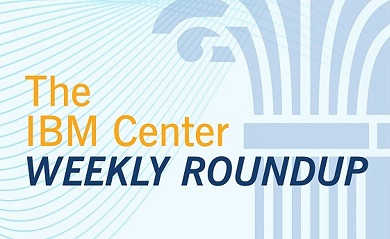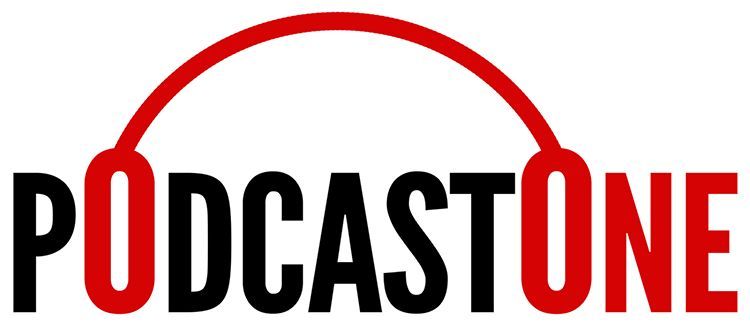
Weekly Roundup: June 7-11, 2021

The Government Technology Silver Bullet: Hiring In-House Technical Talent. If we want to have a lasting impact on the way that our country serves its people, we need to make the most of this momentum to address the root causes beneath these repeated failures. We need to focus our efforts onto the long-term work of addressing the systemic problems that cause our most critical services to fail when they are most needed. I believe that hiring more in-house technical talent might be a silver bullet to addressing the federal government’s technology problems.
Planning for a Safe Increased Return of Federal Employees and Contractors to Physical Workplaces, and for Effective, Efficient, and Inclusive Post-Reentry Work Environments. The Biden-Harris Administration is taking important steps to plan for an effective, orderly, and safe increased return of Federal employees and contractors to the physical workplace (“reentry”), given the significant progress in our fight against the COVID-19 pandemic throughout the United States. To support agencies in those planning efforts, our agencies released OMB: Memorandum M-21-25 on Integrating Planning for A Safe Increased Return of Federal Employees and Contractors to Physical Workplaces with Post-Reentry Personnel Policies and Work Environment.
Can Federal Managers Adapt to a Hybrid or Remote Workplace? Agencies are developing plans for returning federal workers to the office. What that looks like is still undecided. Government, like the private sector, is likely to see a variety of practices that are dependent on agency mission, type of work, and agency culture. As the workplace evolves, we may find ways to allow more employees to permanently telework full time. For now, the reality is that full-time telework does not work for every job.
Biden's pick to lead GSA: 'We can't implement government policy if we can't get the damn websites to work' Robin Carnahan said she will focus on making General Services Administration's offerings more user friendly and digitally secure while improving governmentwide cybersecurity efforts.
White House: Agencies shouldn't require vaccinations or ask for employees' vaccination status. Agencies “generally” should not require vaccination for federal employees or contractors to come back into the office, and they shouldn’t require those individuals to disclose their vaccination status, according to new guidance issued on Tuesday by the White House-led Safer Federal Workforce Task Force. The guidance does note that individuals can choose to voluntarily disclose that information.
First CMMC assessment organization approved. The accrediting body overseeing the Defense Department's Cybersecurity Maturity Model Certification program announced June 9 that RedSpin has met requirements for Certified Third-Party Assessment Organizations and passed the CMMC Level 3 assessment administered by the Defense Industrial Base Cybersecurity Assessment Center.
The Budget Process Is 100 Years Old Today and Its Age Is Showing. This year marks the centennial of the Budget and Accounting Act of 1921, a law requiring, among other things, the president to annually present Congress with a budget proposal for government. While anniversaries are usually a cause for celebration, most would agree that the federal budget process no longer works as it should. A well-functioning democracy requires that elected leaders make sensible fiscal decisions and citizens are engaged and informed—none of which is happening right now. To be ready for the next hundred years, policymakers must take steps to establish a more strategic, evidence-based, participatory, and technologically enabled budget process to help our nation prepare for the many challenges ahead.
5 reasons your company should be innovating now. A return to the office and the reopening of many businesses points to the need for innovation to solve common challenges and changing customer demands, writes Jeffrey Phillips. "The sooner you can define what those wants and needs are, and serve them in a new and interesting way, the better for your future growth," he writes. Innovate on Purpose
Clashing over hybrid work? Stop resisting change. Employers and employees alike must admit that they are resisting changes created by the pandemic and that we need short-term solutions to help us get to longer-term answers of what culture looks like, writes Marlene Chism. "Co-create a hybrid model with your team based on core values, culture, your new definition of productivity and how to best serve your clients," she writes. SmartBrief/Leadership
Study: IT investment paid off when the pandemic hit. One lesson from the pandemic was the importance of investing in technology before a crisis, as those companies outperformed laggards before and during 2020, according to an Accenture study. That tech spend goes beyond day-to-day operations and "includes speeding up software development cycles, changing business processes, and building new capabilities," the authors write. Chief Executive
CEO: Don't expect hybrid work to be easy -- or permanent. Many companies will backtrack on hybrid work environments because bosses want control over employees, while others don't understand the challenges of dealing with remote and on-site teams simultaneously, writes EZPR CEO Ed Zitron. "If you move your company to a hybrid workforce, there needs to be a concerted effort to not alienate those who are in or out of the office, and create an environment where the physical office is seen as a place to do something specific rather than an area to lurk and socialize," Zitron writes. Substack/Ed Zitron
Listening was key to Lego's customer success. One reason Lego turned around its flagging business in the 2000s was that the new CEO deliberately sought out customers to hear their stories, discovering that new and themed products were what customers wanted most, writes Bob Herbold, a retired Microsoft executive. He offers five traits of deep listening, including leading with questions, being respectful and creating a comfortable setting. Bob Herbold's Gutsy Leadership Blog
Embracing the paradoxical challenges of leadership. The best leaders are those who understand the job's paradoxical nature but can still create a strong culture based on realistic values and purpose, write book co-authors Adam Bryant and Kevin Sharer, former CEO of Amgen. "As a leader, you need to be compassionate and demanding; you need to be optimistic and realistic; you need to be urgent and patient," they write. Next Big Idea Club Magazine
Why good arguments are a good idea. Disagreement is part of life, but the existing relationship and the tone and tenor of argument will decide whether such differences are productive or disruptive, writes Ian Leslie. "Conflict offers an insight into the other's heart, revealing truths -- and truthful relationships tend to be stronger," he writes. Next Big Idea Club Magazine
* * * *
Next Week on The Business of Government Hour: A Conversation with Krystal Brumfield, Associate Administrator, Office of Government-wide Policy, U.S. General Services Administration. What is the mission of the U.S. General Services Administration’s (GSA) Office of Government-wide Policy? How is GSA pursuing government-wide sustainable practices? What is GSA doing to enhance government wide performance? Join host Michael Keegan as he explores these questions and more with Krystal Brumfield, Associate Administrator Office of Government-wide Policy at GSA next week on The Business of Government Hour.
Broadcast Schedule: The show airs Monday at 11 a.m., and Friday at 1 p.m. on Federal News Network 1500AM WFED





